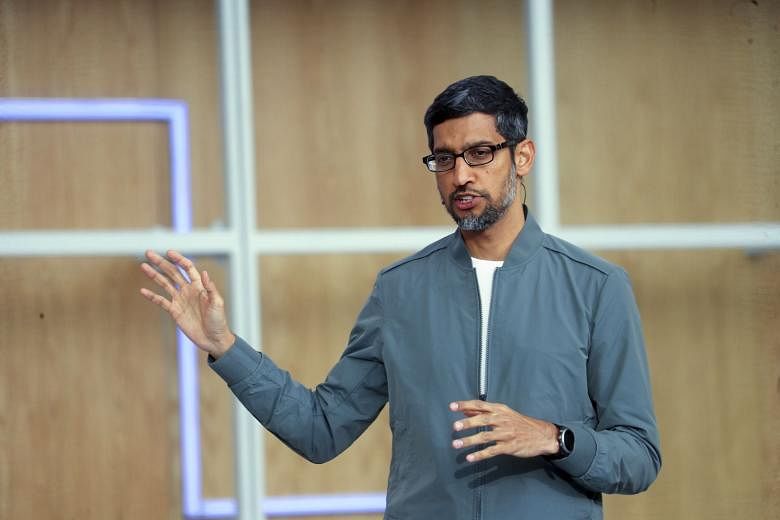MOUNTAIN VIEW - Google has announced new privacy and security features for its products and services to address users' data privacy concerns during its annual I/O developer conference on Tuesday (May 7).
With tech giants reeling from the backlash about user data privacy, Apple, Microsoft and even Facebook have been touting their efforts in ensuring user's privacy. Now it is Google's turn.
During the conference's keynote address at Shoreline Amphitheatre in Mountain View, California, Google chief executive Sundar Pichai said: "Privacy and security are the foundation for all the work we do and we will continue to push the boundaries of technology to make it even better for our users."
For a start, Mr Pichai said that instead of collecting data from users to the cloud for building its artificial intelligence (AI) model, Google will be "shipping" the AI model to users' phones. This way, users' data are secure in their devices.
Previously, Google has been accused of collecting massive amount of users' data for both AI and building user profiles, more so than Facebook, according to a Wall Street Journal report.
"We strongly believe that privacy and security are for everyone, not just a few," he said.
New features on privacy for Android Q - Google's next mobile operating system - include allowing quick access to users' privacy controls by just tapping on the user picture and following the link to their Google account.
There will be a dedicated Privacy section under Settings, where users can find important controls in one place. For example, users can choose to share location data with apps only while they are in use.
During the presentation, Google's product manager Stephanie Cuthbertson said: "You should always be in control of what you share and who you share it with."
In addition, there will be a new setting in Google accounts that allows users to automatically erase search and location history on their smartphone after three months, 18 months or when users choose to. This will be rolled out in the coming weeks.
Another new privacy feature for Google products is the Incognito mode on YouTube. When turned on, this mode - currently available on Google's Chrome Web browser - prevents users' browsing or search history to be saved in their Google account. It will be coming soon to Google Maps and Search.
Mr Pichai said: "It's how we develop our technology, with privacy and security at their core."


